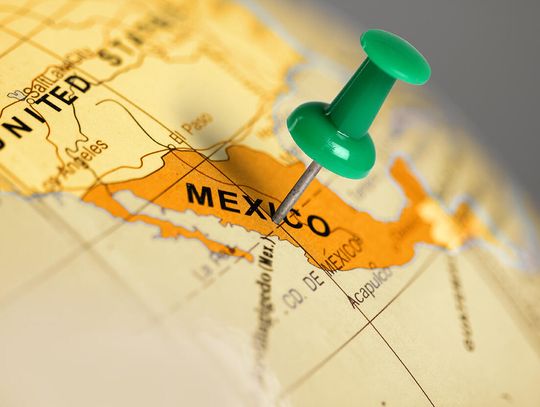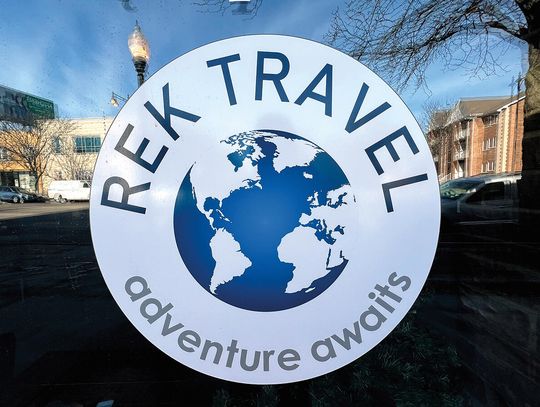W zeszłym tygodniu świętowaliśmy złożoność historii.Wszystko wydarzyło się 12 października. Od 1968 roku dzień 12 października uznawany jest za święto federalne – Dzień Kolumba. Przed 1968 rokiem Dzień Kolumba obchodzono w niektórych miejscach, a w innych nie. W dużej mierze zależało to od liczebności populacji włoskiego pochodzenia w regionie. Chicago ma dużą populację Włochów, dlatego miasto świętuje Kolumba od 70 lat.Inne regiony nie mają dużej populacji Włochów. W rzeczywistości około jedna trzecia stanów w USA nie obchodzi Dnia Kolumba, mimo że jest to święto federalne.Zamiast tego niektóre z tych stanów świętują Dzień Ludności Rdzennej. To święto honorujące rdzennych Amerykanów – tych, którzy zamieszkiwali te tereny przed Kolumbem. W 2021 roku prezydent Biden upamiętnił Dzień Ludności Rdzennej jako święto narodowe. W tym roku upamiętnił to ponownie.Więc w tym roku mieliśmy dwa święta federalne 12 października – Dzień Kolumba i Dzień Ludności Rdzennej.Jedną z rzeczy, które zaskoczyły mnie w związku z tym podwójnym świętem, to ilość kłótni, które wygenerowały w mediach społecznościowych.Dam wam osobisty przykład.Opublikowałem na swojej facebookowej stronie mój wiersz zatytułowany „The Coming of Columbus” (Przybycie Kolumba). Wiersz opowiada o tym, jak przybycie Kolumba rozpoczęło apokaliptyczny proces, który niemal zniszczył rdzennych Amerykanów.Odpowiedzi, które otrzymałem, były równo podzielone pomiędzy tych, którzy oklaskiwali mnie za powiedzenie prawdy oraz tych, którzy atakowali mnie za ignorowanie złych czynów, które popełniali rdzenni mieszkańcy.Prawda o Kolumbie? Przywiózł pierwszych Europejczyków do Nowego Świata, ale był także odpowiedzialny za niewyobrażalnie wielką brutalność wobec rdzennych mieszkańców wysp, na których wylądował. Tam tubylcy musieli płacić mu w złocie co trzy miesiące. Jednak było tam zbyt mało złota, więc nie mogli płacić. W rezultacie byli torturowani i zabijani, a ci, którzy przeżyli, zostali niewolnikami. Według jednego źródła, kiedy Kolumb przybył na Karaiby w 1492 roku, mieszkało tam około ćwierć miliona tubylców. Kiedy opuścił ten rejon w 1504 roku, zostało ich około 100 tys. Wiele z tych zgonów spowodowane było brutalnością, ale historycy obwiniają za nie także choroby, które Hiszpanie przywieźli ze sobą na wyspy.
Prawda o rdzennej ludności? Wielu wyobraża ich sobie jako prostych ludzi, którzy szanowali ziemię i szanowali się nawzajem, ale tak jak w przypadku Kolumba, jest też druga strona. Są historycy, którzy argumentują, że ludność rdzenna zużyła zasoby naturalne swoich terenów, a tym samym zniszczyli środowisko naturalne, w którym żyli. Inni historycy piszą o konfliktach pomiędzy różnymi grupami rdzennej ludności, które doprowadziły do zagłady wielu plemion. Zło wyrządzone przez Kolumba zdaje się odbijać echem wśród ludności rdzennej.Więc co powinniśmy zrobić? Świętować Dzień Kolumba? Świętować Dzień Ludności Rdzennej? Niech szlag trafi oba te święta?Dla mnie lekcja jest oczywista.Jeśli cokolwiek mi mówi ten konflikt pomiędzy świętowaniem Dnia Kolumba a Dnia Ludności Rdzennej, to jest to fakt, że historia nie jest prostą lekcją, której uczył mnie nauczyciel w 4 klasie.Historia jest złożona. To nigdy nie jest jedna historia, jedna prosta prawda, a ci, którzy mówią, że tak jest, są głupcami lub kłamcami.
What is History?
Last week, we celebrated the complexity of history.It all occurred on October 12. Since 1968, October 12 has been officially recognized as a Federal holiday, Columbus Day. Before 1968, Columbus Day was celebrated in some places and not others. It depended largely on the Italian population of a region. Chicago has a large Italian population, and the city, therefore, has been celebrating Columbus for 70 years.Other areas don’t have large Italian populations. In fact about a third of the States in the US don’t celebrate Columbus Day, even though it’s a Federal holiday.Some of those states celebrate Indigenous Peoples’ Day instead. It’s a holiday celebrating Native American, the ones who were here before Columbus. In 2021, President Biden commemorated Indigenous Peoples’ Day as a National Holiday. He commemorated it again this year.So this year and last we had two Federal holidays celebrated on Oct. 12, Columbus Day and Indigenous Peoples’ Day.One of the things that surprised me about this dual holiday was the amount of arguing that it generated on social media.Let me give you a personal example.I posted a poem of mine called “The Coming of Columbus” on my Facebook page. The poem talks about how the arrival of Columbus began an apocalyptic process that almost destroyed the Native Americans.The response I received was evenly divided between those who applauded me for telling the truth about Columbus and those who attacked me for ignoring the evil deeds the Indigenous People committed.The truth about Columbus? He did bring the first Europeans to the New World, but he also was responsible for a tremendous amount of brutality against the Indigenous People on the islands he landed on. There, the natives were required to pay him gold every three months. There was little gold there, however, so they couldn’t pay Columbus. As a result, they were tortured and killed, and the survivors were enslaved. According to one source, when Columbus arrived in the Caribbean in 1492 there were about a quarter of a million natives there. When he left in 1504, there were about 100,000. Many of these deaths were caused by brutality, but some historians also blame the diseases that the Spanish brought to the islands.The truth about the indigenous people? Many have this image of them as simple people who respected the land and respected each other, but as with Columbus there is another side. There are historians who argue that some of the Indigenous People used up the natural resources of their environments and thereby destroyed the environment they lived in. Other historians write about the conflicts between the various indigenous people, conflicts that resulted in the annihilation of various tribes. The evils of Columbus seem to echo those of the Indigenous People.So what are we supposed to do? Celebrate Columbus? Celebrate Indigenous People? Damn them both?For me, the lesson is quite obvious.If the conflict between celebrating Columbus or the Indigenous People tells me anything, it tells me that history is not the simple lesson my 4th grade teacher taught me.History is complex. It’s never one story, never one simple truth, and those who say it is simple are fools or liars.
John Guzlowski
amerykański pisarz i poeta polskiego pochodzenia. Publikował w wielu pismach literackich, zarówno w USA, jak i za granicą, m.in. w „Writer’s Almanac”, „Akcent”, „Ontario Review” i „North American Review”. Jego wiersze i eseje opisujące przeżycia jego rodziców – robotników przymusowych w nazistowskich Niemczech oraz uchodźców wojennych, którzy emigrowali do Chicago – ukazały się we wspomnieniowym tomie pt. „Echoes of Tattered Tongues”. W 2017 roku książka ta zdobyła nagrodę poetycką im. Benjamina Franklina oraz nagrodę literacką Erica Hoffera za najbardziej prowokującą do myślenia książkę roku. Jest również autorem serii powieści kryminalnych o Hanku i Marvinie, których akcja toczy się w Chicago oraz powieści wojennej pt. „Retreat— A Love Story”. John Guzlowski jest emerytowanym profesorem Eastern Illinois University.-John Guzlowski's writing has been featured in Garrison Keillor’s Writer’s Almanac, Akcent, Ontario Review, North American Review, and other journals here and abroad. His poems and personal essays about his Polish parents’ experiences as slave laborers in Nazi Germany and refugees in Chicago appear in his memoir Echoes of Tattered Tongues. Echoes received the 2017 Benjamin Franklin Poetry Award and the Eric Hoffer Foundation's Montaigne Award for most thought-provoking book of the year. He is also the author of two Hank Purcell mysteries and the war novel Road of Bones. Guzlowski is a Professor Emeritus at Eastern Illinois University.










